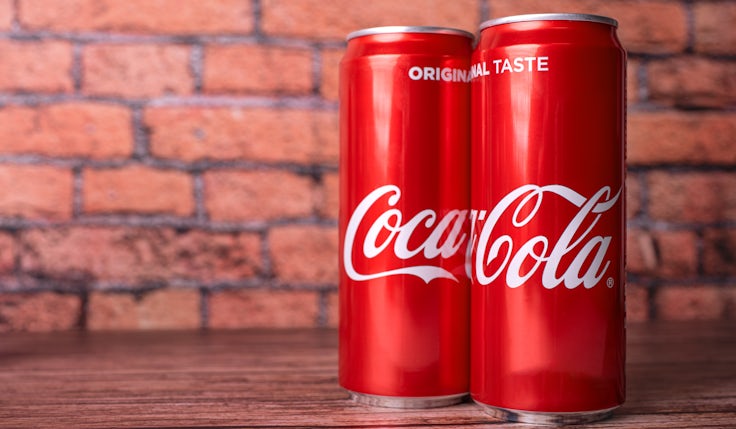VW overhauls its brand for a ‘new era’ as it attempts to put emissions scandal behind it
Volkswagen has created a “no filter” brand world that includes the introduction of a new logo, brand design and female voice.

Volkswagen is rebranding with a new “authentic” strategy as it attempts to put its 2015 emissions scandal behind it.
The “New Volkswagen” sees the car company “mark the start of a new era” with a new logo and brand design that it promises will “not show a perfect advertising world”.
Jochen Sengpiehl, CMO of Volkswagen, says: “We have created a new holistic global brand experience on all channels and across all touchpoints.
“As a general principle, the aim in future will not be to show a perfect advertising world. In our presentation, we want to become more human and more lively, to adopt the customer’s perspective to a greater extent and to tell authentic stories.”
The brand’s “no filter” digital-first approach was developed by 19 internal design and marketing teams, and 17 external agencies.
VW’s visuals will be bolder and more colourful, and come with a promise to focus more on people than products. According to the brand, this means “the main objective will be to present realistic situations that customers can identify with”.
Volkswagen should be focusing on effectiveness not efficiency
The car marque is also introducing a sound logo, rather than a brand claim, that will be used across its communications. The brand will also be using a female, rather than male voice to present its vehicles (for examples at trade shows) and in its advertising to introduce a “warm, pleasant and confident” voice across its markets.
The redesign has taken nine months to conceive and will now be rolled out across 171 markets, including at the 10,000 facilities of dealers and service partners, which will involve replacing around 70,000 logos. This will start in Europe, followed by China in October, with the global rebrand to be completed by the middle of 2020.
The new logo shows a simplified VW, with changes including a switch to two-dimensions and reducing it “to its essential elements” to ensure it works well in digital formats.

“The new brand design marks the start of the new era for Volkswagen,” explains Jürgen Stackmann, member of the brand board of management responsible for sales, marketing and after-sales.
He adds: “By formulating new content and with new products, the brand is undergoing a fundamental transformation towards a future with a neutral emission balance for everyone. Now is the right time to make the new attitude of our brand visible to the outside world.”
The ‘New Volkswagen’ strategy will affect both product design and marketing across both passenger and commercial vehicles. It is accompanied by the launch of its full-electric car, the ID.301, at the IAA Frankfurt International Motor Show to highlight that Volkswagen’s future is “electric, fully connected and has a neutral carbon balance”.
Recovering from the emissions scandal
Volkswagen has been attempting to transform the company since the emissions scandal emerged in September 2015, when VW was found to be using software that could detect when regulators were running emissions tests and adjust the results so its vehicles would pass. That led to fines and the firing of many of its exec team.
The new VW is the work of CEO Herbert Diess, who took over the top role in the wake of the crisis. The scandal, dubbed ‘Dieselgate’ prompted VW to examine every area of its business to work out a future strategy.
Why Volkswagen cannot survive the emissions scandal unscathed
Last November, it promised to invest €44bn (£39bn) in “future-orientated topics”, in particular artificial intelligence, to ensure all its vehicles are “always on”.
The work to get the VW brand back to where it was, in terms of consumer perception, appears to be working. In the immediate aftermath of the scandal, VW halted advertising, then in December ran a series of print ads apologising and reassuring customers.
It has since overhauled its advertising, getting rid of its ‘Das Auto’ slogan and reducing the number of agencies on its roster 40 to three in a bid to drive marketing efficiency by “around 30%”, without increasing its media spend.
Four years on, the brand is still in recovery. According to YouGov’s BrandIndex, Volkswagen’s Index score (a measure of a range of metrics including quality, value and reputation) is up significantly since the height of the scandal.
On 1 September 2015, just before Dieselgate broke, the brand had a score of 25.3; this then dropped significantly to a low of -1.6 on 18 December 2015. Since then, its brand has been in recovery, and on 1 September had a score of 20.5, well up on the lows but not yet back at its previous score.

This pattern is mirrored across other metrics including quality, value, and reputation. However, in terms of purchase intent, VW has actually overtaken its score prior to the scandal, with the measure now sitting at 8.1 compared to 7.3 on 1 September 2015.
VW’s sales have also been relatively strong despite the scandal. In 2018, it managed to grow its UK market share to 8.42%, ahead of the 8.21% share it had in 2017 and making it the second biggest car marque in terms of value sales in the UK. to become number 2 in the market. It is also the second largest car manufacturer globally, with a 7.38% market share.







